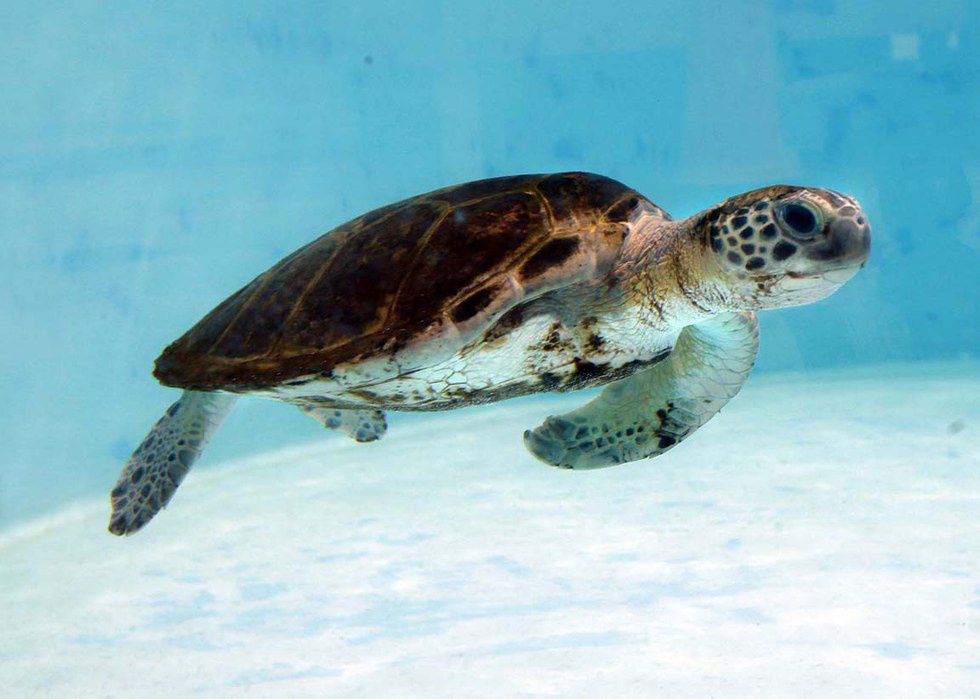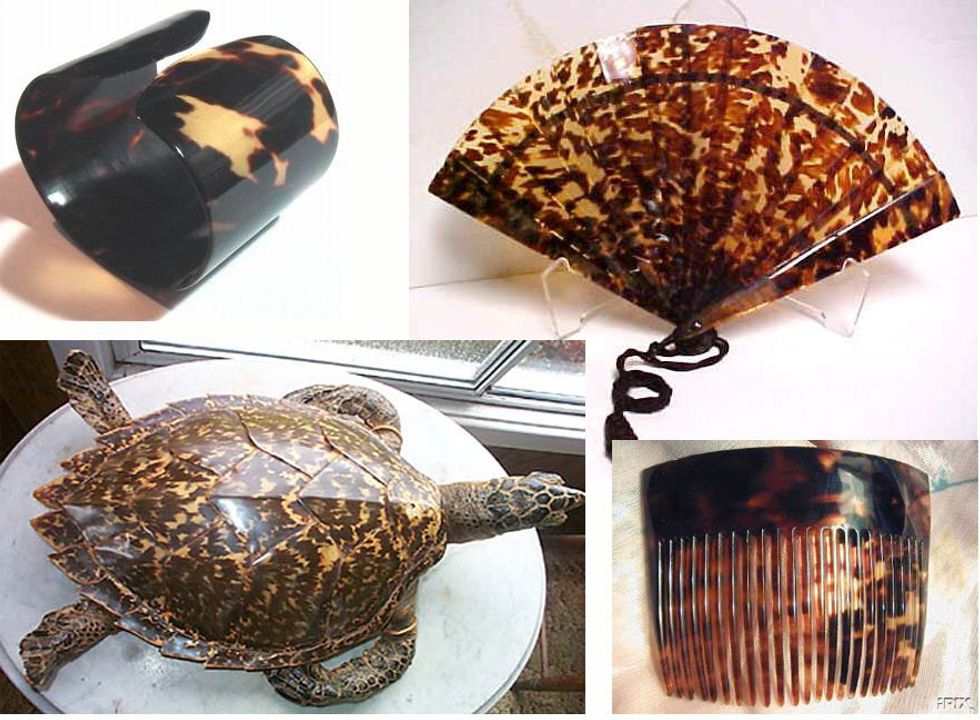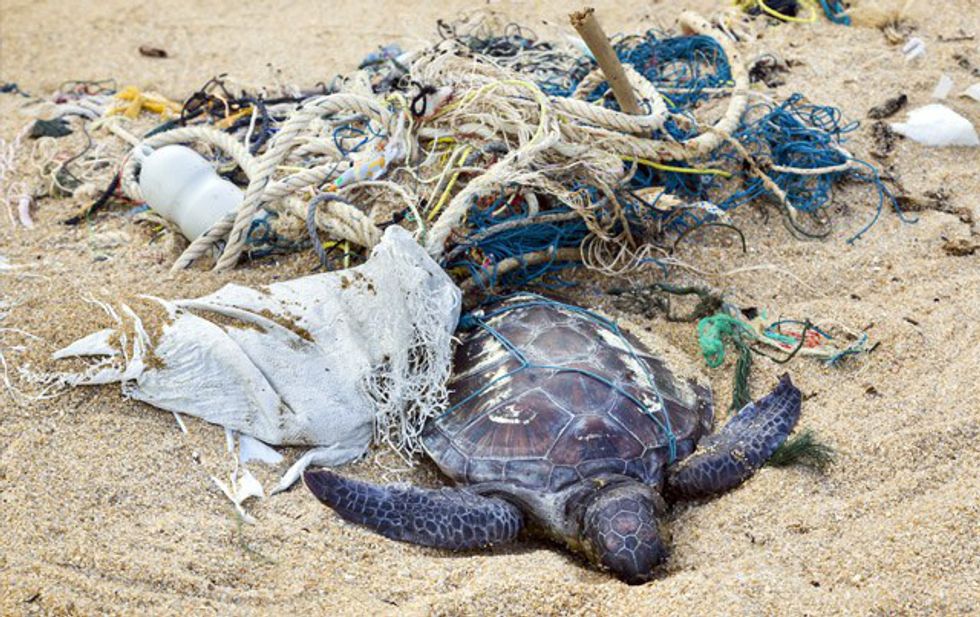I volunteered at the Loggerhead Marinelife Center last year when I attended school in Florida. It is by far the number one thing I miss from there. It’s a sea turtle hospital and they treat thousands of local sea turtles per year. 80% of the sea turtles we receive at the hospital have their injuries because of humans. These injuries occur from ingesting plastic, fishing hooks, being hit by boats, and not being able to find food because of humans destroying their habitat by over-fishing and polluting the waters. It is possible that the world in which sea turtles cannot survive may soon become the world in which humans struggle to survive. If, however, we learn from our mistakes and begin changing our behavior, there is still time to save sea turtles from extinction. In the process, we will be saving one of the earth's most mysterious and time-honored creatures. We might be saving ourselves too.
Recommended for you
Green Sea Turtles are grazing animals. They eat seagrass. There has been a decline in seagrass beds. They maintain the health of the seagrass beds, and without them, we lose the seagrass beds completely, affecting many other species. Beaches and dune systems do not get very many nutrients during the year, so very little vegetation grows on the dunes. No vegetation grows on the beach itself because the sand does not hold nutrients very well. Sea turtles use beaches and the lower dunes to nest and lay their eggs. Sea turtles lay 100 eggs in a nest. They lay between 3 and 7 nests during the summer nesting season. Dune vegetation is able to grow and become stronger with the presence of nutrients from turtle eggs. As the dune vegetation grows stronger and healthier, the health of the entire beach/dune ecosystem becomes better. Stronger vegetation and root systems help to hold the sand in the dunes in place. This also helps protect the beach from erosion. As the number of turtles decline, fewer eggs are laid in the beaches, providing fewer nutrients.
If sea turtles went extinct, dune vegetation would lose a major source of nutrients and would not be as healthy and would not be strong enough to maintain the dunes, resulting in increased erosion. We can eliminate disturbances at nesting beaches by decreasing artificial lighting, halting beach armoring, regulating beach nourishment and limiting the impacts of people on the beach.
Another way to promote sea turtle life is to crack down on illegal international trade in sea turtles and their products by enforcing laws and agreements. Hawksbill sea turtles recognized for their beautiful gold and brown shells, have been hunted for centuries to create jewelry and other luxury items. As a result, these turtles are now listed as critically endangered. Scientists estimate that hawksbill populations have declined by 90 percent during the past 100 years.
Decreasing the turtle deaths caused by commercial fishing through enforcement of Turtle Excluder Device (TED) and gill net regulations. TEDs are a grid of bars with an opening either at the top or the bottom of the trawl net. The grid is fitted into the neck of a shrimp trawl. Small animals such as shrimp pass through the bars and are caught in the bag end of the trawl. When larger animals, such as marine turtles and sharks are captured in the trawl they strike the grid bars and are ejected through the opening. Today, all U.S. shrimpers are required to put TEDs in their trawl nets. Unfortunately, not all fishermen comply with the law, and sea turtles continue to drown in shrimp nets.
It is estimated that more than 100 million marine animals are killed each year due to plastic debris in the ocean. More than 80% of this plastic comes from land. It washes out from our beaches and streets. It travels through storm drains into streams and rivers.
Leatherbacks especially, cannot distinguish between floating jellyfish--the main component of their diet--and floating plastic bags. Most of the debris is recognizable: plastic bags, balloons, bottles, degraded buoys, plastic packaging, and food wrappers. Some plastics aren't so easy to see, so small, in fact, that it is invisible to the naked eye. If sea turtles ingest these particles, they can become sick or even starve.
Plastic Water Bottles we buy from the store are unable to be recycled because it is such a low grade of plastic. Try using a reusable and refillable water bottle instead of buying plastic water bottles. Plastic never goes away, it only becomes smaller and smaller which affects smaller and smaller animals. 100% of the baby sea turtles, washbacks, and hatchlings we have received from these past few months have had plastic inside their intestines. When you're out at night on the beach, do not use a flashlight, you could confuse a sea turtle hatchling. They think it is the light of the moon and will follow it and eventually run out of nutrients and die. When you are traveling out of the country, make sure what you are purchasing is not made out of illegal sea turtle shell. It will be marked with a replica sticker from the Fish and Wildlife Conservation Department. Always recycle, never throw trash out on the street or on the beach. If you see any trash pick it up and throw it away. Just picking up any trash you see and containing your own trash can make a huge difference in an animal's life.





















